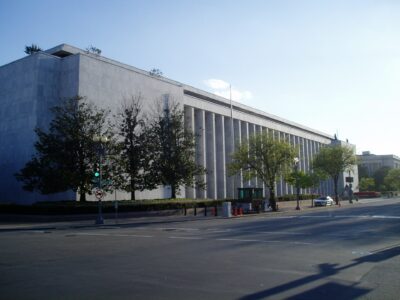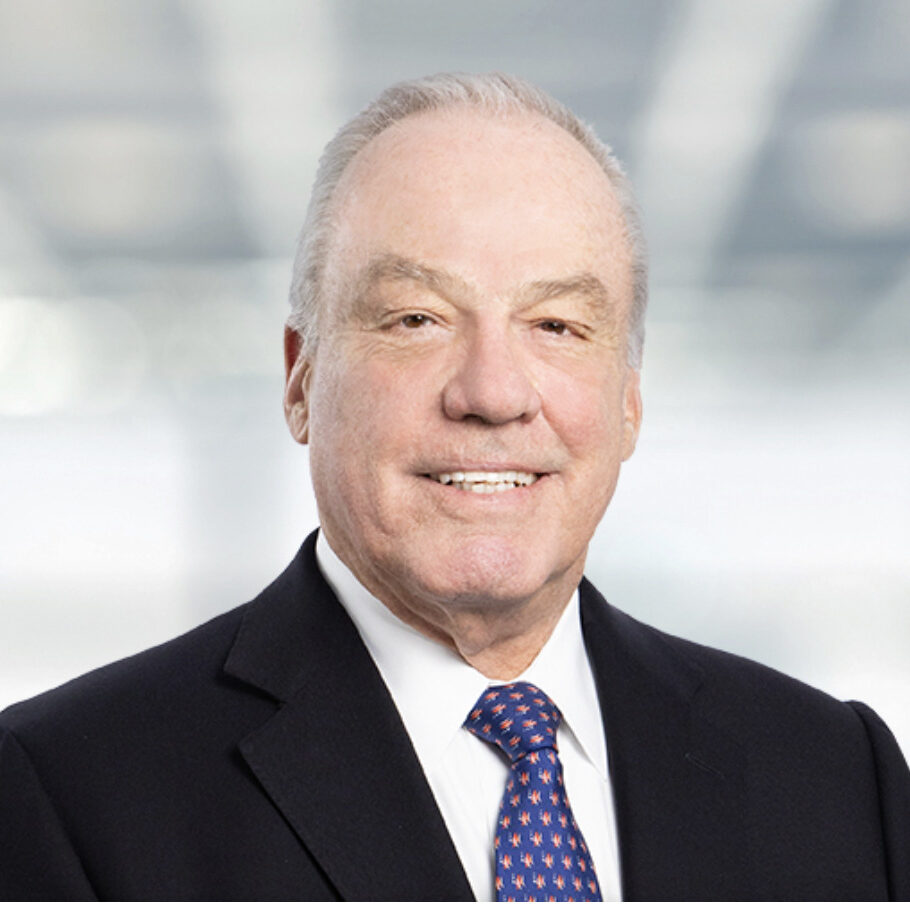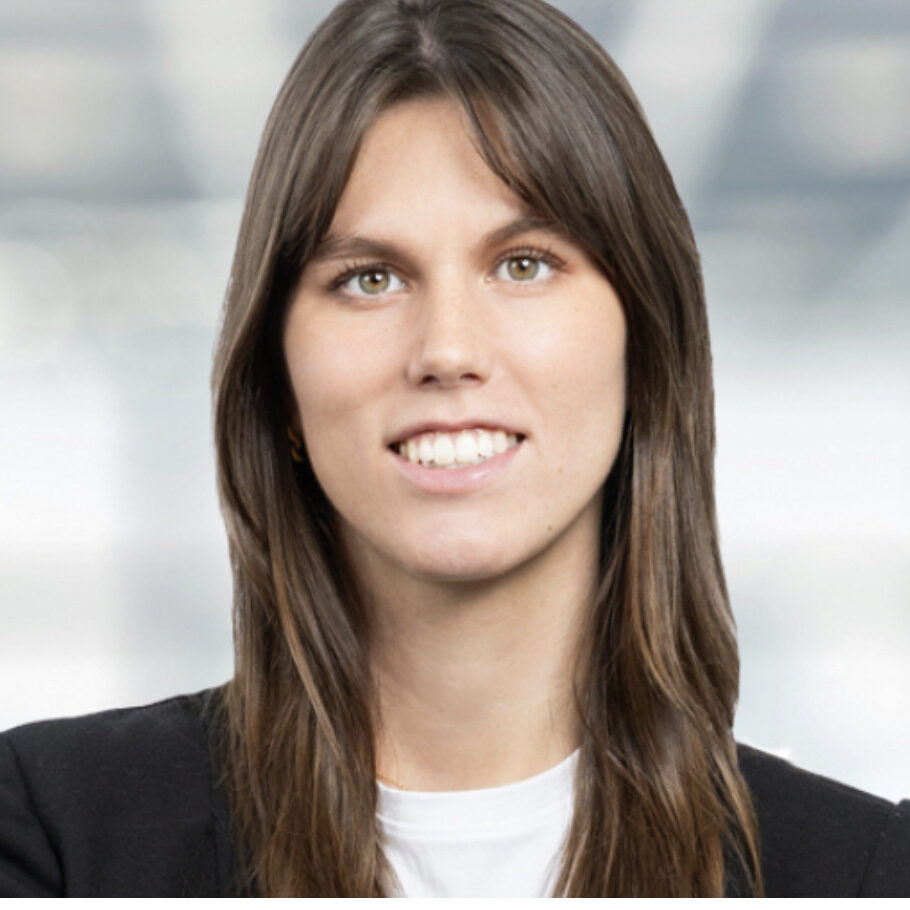“[A petition for new exemptions to the DMCA] advocates for an exemption allowing the circumvention of technological measures controlling access to ‘copyrighted generative AI models.’ This would legitimize the sharing of research findings, techniques, and methodologies aimed at uncovering and addressing biases in generative AI models.”
 In 2023, the U.S. Copyright Office (USCO) addressed key challenges in copyright law, ranging from navigating the intricacies of AI-generated content to refining rules for the modern music industry, as well as proposing new exemptions as part of the ninth triennial rulemaking proceeding. These major developments underscore the Office’s dedication to keeping copyright law current in the face of rapid evolution, and offering a glimpse of what lies ahead.
In 2023, the U.S. Copyright Office (USCO) addressed key challenges in copyright law, ranging from navigating the intricacies of AI-generated content to refining rules for the modern music industry, as well as proposing new exemptions as part of the ninth triennial rulemaking proceeding. These major developments underscore the Office’s dedication to keeping copyright law current in the face of rapid evolution, and offering a glimpse of what lies ahead.
I. Copyright Office Launches Artificial Intelligence Initiative to Address Upcoming Challenges
Last February, the USCO partly canceled an artist’s registration for a comic book after it discovered that the images in the work had been created using Artificial Intelligence (AI). In response to Kristina Kashtanova’s inquiry regarding the authorship of their work, the Office concluded that it would replace the original registration with a new one covering only the human-text but considered that the individual images themselves generated by the AI service Midjourney did not constitute copyrightable works. The USCO argued that the images were “not the product of human authorship,” as required by the Copyright Act. Indeed, courts interpreting the phrase “works of authorship” have historically limited it to the creations of human authors (See for example Burrow-Giles Lithographic Co. v. Sarony 111 U.S. 53, 57–59 (1884)).
This recent decision has prompted inquiries into the coexistence of copyright and AI. In response to numerous public requests, the USCO launched a new initiative to address policy issues arising from evolving AI technology. The Office issued updated guidance to clarify its practices for examining and registering works containing AI-generated content (88 Fed. Reg. 16190 (Mar. 16, 2023)). The guidance focused primarily on the human authorship requirement, stating that copyright law “protect[s] only material that is the product of human creativity.”
The USCO reasoned that AI-generated material is not the product of human authorship in cases where: (i) users lack ultimate creative control over how the AI system interprets, prompts and generates material; and (ii) the AI technology determines the expressive elements of its output. As a result, such material is deemed not copyrightable and must be disclaimed in a registration application. Works containing AI-generated materials may, however, be copyrighted if they contain sufficient human authorship to meet the standard for protection. Selecting or modifying AI-generated content in such manner that the resulting work constitutes an original work of authorship can be considered to meet the standard for protection. Moreover, copyright law will only protect the human-authored aspects of the work that are “independent of” and do “not affect” the copyright status of the AI-generated material itself. The USCO emphasized that applicants have a duty to disclose the inclusion of AI-generated content in works submitted for registration.
The Office has hosted a series of sector-specific listening sessions to collect informal public feedback on AI issues. The deadline for initial submissions stated in the notice of inquiry (NOI) was extended to the end of October. Reply comments were accepted until December 6. Ultimately, the Office intends to issue a report on generative AI in 2024.
II. Proposed Rules for Implementing the Music Modernization Act
The USCO has undertaken a rulemaking process to provide clear guidance on the appropriate applicability of the statutory derivative works exception to copyright termination rights within the framework of blanket licenses administered under the Orrin G. Hatch-Bob Goodlatte Music Modernization Act (the “MMA”).
Sections 203 and 304 of the Copyright Act allow authors of protected works to reclaim their copyrights after a certain period of time. The rationale behind such termination rights is to safeguard the interests of creators whose works achieve significant success, ensuring they are not bound by licensing agreements made before the full value of their work comes to light. However, a statutory exception applies to derivative works created during the licensed period, which permits owners of such works to continue using them after termination.
Recent changes in the music industry, notably the 2018 MMA introducing the mechanical blanket license, did not explicitly address termination rights. A critical question emerged regarding how the derivative works exception applies to blanket licenses when songwriters terminate their agreement with music publishers. The Mechanical Licensing Collective (MLC), responsible for implementing rules under the MMA, viewed publishers’ sound recordings as derivative works. This implies that royalty payments would persist for publishers post-termination, provided the blanket license was established before termination took effect. Songwriters argued that this interpretation would prevent original authors from ever regaining copyrights or, at the very least, the benefits derived from the rights granted under the blanket license, all while allowing producers to use a wide range of songs.
In response to the MLC termination dispute policy, the USCO issued a notice of proposed rulemaking (NPRM) clarifying that the derivative works exception is inapplicable to blanket licenses. The eligible recipient for royalties from digital music providers is the copyright owner “at the time the work is used.” This enables authors to regain their copyrights and receive post-termination royalties. Responding to requests for additional guidance, the USCO published a supplemental proposed rule (SNPRM) confirming that the appropriate payee under the mechanical blanket license is the copyright owner when the related use occurred, not “at the time of payment,” as suggested by some commentators.
The Office extended the rule to cover various music licenses, specifying that the derivative works exception does not impact matched royalties or individual download licenses. The Office asserted that the former are governed by existing statutory provisions, and the latter should be handled akin to blanket licenses. For voluntary licenses, the Office proposed a pragmatic approach, suggesting that the MLC follows specific instructions from copyright owners or dispute resolutions instead of making independent judgments. In the event of disputes, the USCO placed the burden of proving the exception’s applicability on the pre-termination copyright owner, with the MLC holding relevant royalties pending resolution.
The USCO continues to evaluate comments for the NPRM and invites public comments on the SNPRM. In the meantime, the MLC has suspended its termination dispute policy pending the outcome of the Office’s rulemaking proceeding.
III. Proposed Exemptions in the Ninth Triennial Proceeding Under Section 1201 of Title 17
The USCO has published a notice of proposed rulemaking as part of the ninth triennial proceeding under Section 1201 of title 17 of the United States Code. This process allows the public to request exemptions from the prohibition on circumventing technological protection measures.
Section 1201, enacted as part of the Digital Millenium Copyright Act (the “DMCA”), typically prohibits trafficking in technologies used to circumvent either access or copy controls employed by copyright owners to protect their works. However, the Librarian of Congress, with the Register of Copyright’s recommendation, can temporarily exempt certain classes of works from this restriction. Every three years, the USCO is responsible for conducting the rulemaking and recommending exemptions to the Librarian of Congress, who has the final authority to adopt them. During this process, petitions may request renewal of exemptions, as well as propose new exemptions. Once the USCO issues a notice of proposed rulemaking, the public has the opportunity to support or oppose the proposed exemptions.
After reviewing public inquiries, the USCO intends to recommend keeping all existing exemptions but one. This decision is grounded in the absence of evidence demonstrating ongoing or potential adverse effects on non-infringing uses of 3D printer software due to the prohibition on circumvention. Moreover, the USCO has examined petitions for new exemptions, categorizing them into seven classes. Among these submissions is a notable petition by Jonahtan Weiss, contributing to the ongoing discussion regarding the intersection of AI technologies and copyright law. Weiss advocates for an exemption allowing the circumvention of technological measures controlling access to “copyrighted generative AI models.” The proposed exemption is expressly limited to researching biases within these models. If approved, the exemption would not only facilitate circumvention but also legitimize the sharing of research findings, techniques, and methodologies aimed at uncovering and addressing biases in generative AI models. The petitioner contends that the overarching goal is to enhance fairness and transparency in the development of AI models. To prevent potential misuse of the exemption, the proposition introduces three safeguards: (i) the exemption should be applicable only when the primary intention is to identify and address the biases, not to exploit them; (ii) personal or sensitive data must remain uncompromised; and (iii) researchers should actively engage with AI developers and stakeholders to address discovered biases.
The legal implications of approving this petition are presently unclear. While granting approval has the potential to foster research and innovation in generative AI, thereby improving model quality, fairness, and transparency, it also raises concerns about potential risks to intellectual property rights, privacy, and security. Striking a delicate balance between facilitating progress and safeguarding against potential misuse or abuse of AI models and the generated data is crucial.
The USCO is seeking public input on whether to adopt this proposed exemption. Commenters are encouraged to provide comprehensive information about relevant technological protection measures, their impact on non-infringing uses, and whether eligible users have alternative avenues to access the software without resorting to circumvention. Additionally, commenters are urged to provide a legal basis for asserting that the proposed uses are likely to be non-infringing.
Image Source: https://en.wikipedia.org/wiki/United_States_Copyright_Office#/media/File:MadisonBuildingLOC.JPG

![[IPWatchdog Logo]](https://ipwatchdog.com/wp-content/themes/IPWatchdog%20-%202023/assets/images/temp/logo-small@2x.png)


![[Advertisement]](https://ipwatchdog.com/wp-content/uploads/2024/04/UnitedLex-May-2-2024-sidebar-700x500-1.jpg)
![[Advertisement]](https://ipwatchdog.com/wp-content/uploads/2024/04/Artificial-Intelligence-2024-REPLAY-sidebar-700x500-corrected.jpg)
![[Advertisement]](https://ipwatchdog.com/wp-content/uploads/2024/04/Patent-Litigation-Masters-2024-sidebar-700x500-1.jpg)

![[Advertisement]](https://ipwatchdog.com/wp-content/uploads/2021/12/WEBINAR-336-x-280-px.png)
![[Advertisement]](https://ipwatchdog.com/wp-content/uploads/2021/12/2021-Patent-Practice-on-Demand-recorded-Feb-2021-336-x-280.jpg)
![[Advertisement]](https://ipwatchdog.com/wp-content/uploads/2021/12/Ad-4-The-Invent-Patent-System™.png)






Join the Discussion
No comments yet.